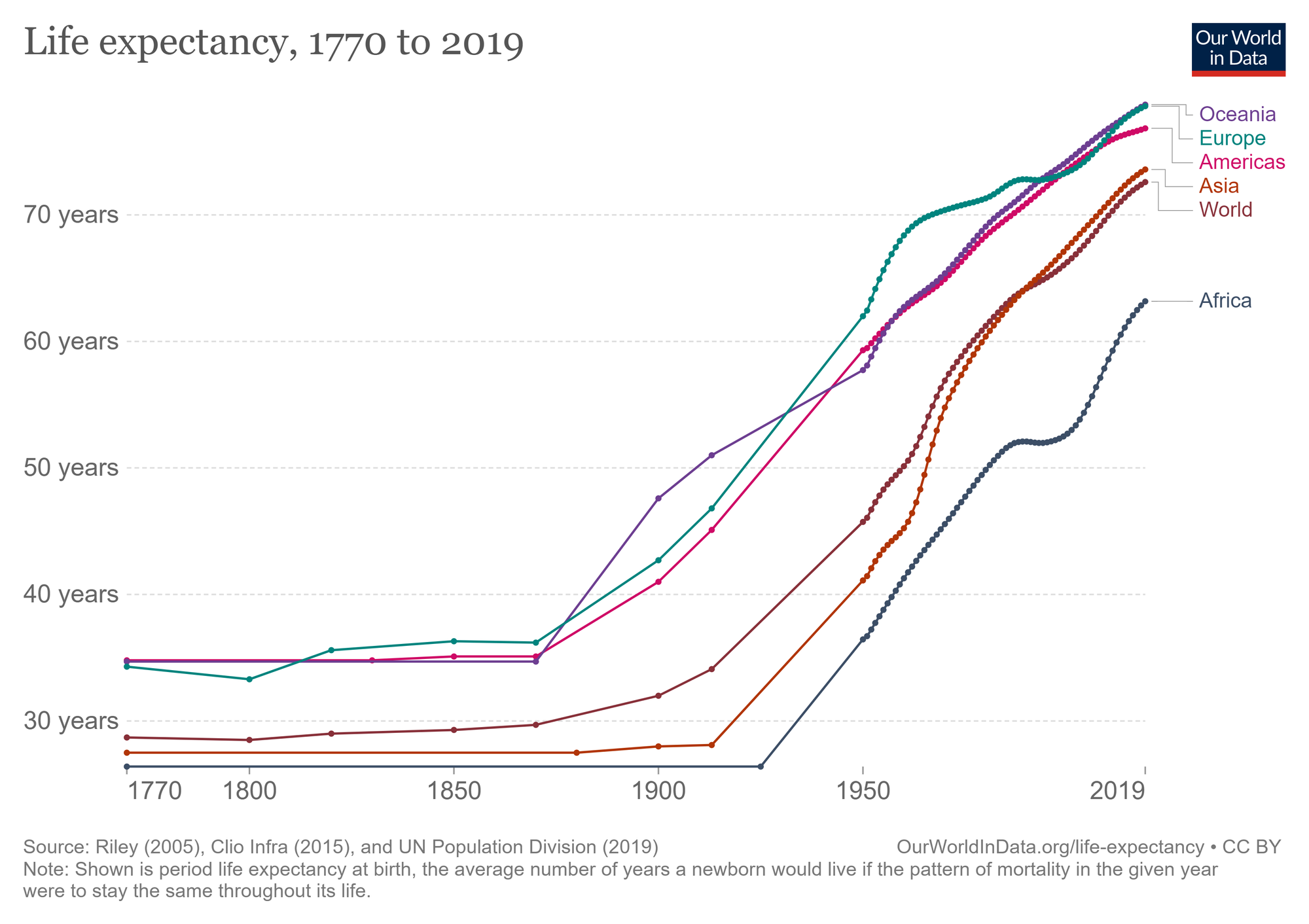Living Long in the Land
This week’s report by the FBI showing that murders spiked nearly 30% in the U.S. last year is the latest bit of confirmation for what we all know: a lot more people than usual lost their lives prematurely in 2020.
The FBI’s data add to the July report by the U.S. Centers for Disease Control, which showed that Americans’ average life expectancy dropped by 18 months last year. More murders and more drug overdoses were factors, but three-quarters of the decline was due to COVID.
COVID has killed more Americans than died as a result of the entire Civil War. And even if you believe the COVID death toll has been inflated, cut the official statistics by half, and the disease has still killed more Americans than died fighting in World War 2. Worldwide, COVID has killed roughly 4.7 million people, and the pandemic is far from over.
The good news is that these declines—as serious as they are—are a blip compared to the tremendous gains in lifespans over the past century or so. As you can see in the chart below, life expectancies have been steadily rising across the entire world for at least 100 years. We’ve seen blips before—the last one with as much impact as COVID was, again, World War 2—but the rising trend has always kept going.

In short, life expectancies are roughly double what they were, across the globe, as recently as the late 19thCentury. That’s twice as many years to love our families, to labor for good, to worship God.
This is my sixth post in a series on positive cultural trends. (Here are the first, second , third, fourth and fifth posts in this series.) My goals are to cheer up my fellow Christians, too many of whom have become overly pessimistic in recent years, and to remind all of us that Jesus the King is still acting within our cultures to bless us and glorify Him.
Rising lifespans are something all Christians should cheer. Many of us have been vocal pro-lifers, arguing that life is something inherently good. That’s what the oft-repeated phrase “sanctity of life” means.
Life is inherently good at its end, just as much as its beginning. The Bible says so—over and over again. In both the Old and New testaments, long life is promised as a reward for righteous and faithful living.
The Apostle Paul, quoting the Fifth Commandment, wrote in Ephesians 6:2-3: “Honor your father and mother’ (this is first commandment with a promise), that it may go well with you and that you may live long in the land.”
God Himself told Solomon, in 1 Kings 3:14, “if you will walk in my ways, keeping my statutes and my commandments, as your father David walked, then I will lengthen your days.”
Whether or not the world has shown the righteousness and faithfulness to deserve them, the significant gains in lifespans we now enjoy are undeniably a blessing from God.
To deliver that blessing, God has used means. The researchers that produced the chart above credit improvements in the quantity and quality of nutrition, major improvements in public health—such as sanitation and smoking cessation—as well as medical innovations, especially in childbirth and cardiac disease, for improving lifespans over the past century.
Those reasons roughly correspond to how God told the Israelites He would lengthen their lives when they entered the Promised Land. In Exodus 23:25-26, God said, “You shall serve the LORD your God, and he will bless your bread and water, and I will take sickness away from among you. None shall miscarry or be barren in your land; I will fulfill the number of your days.”
I fully expect life expectancies to resume their steady rise after COVID. But the way to make that happen isn’t to minimize or wish away the mass-casualty event we’re still experiencing. Instead, we should 1) walk in the ways of the Lord and 2) use all the wisdom God has given us—on nutrition, public health and health care—to limit death and lengthen life.
